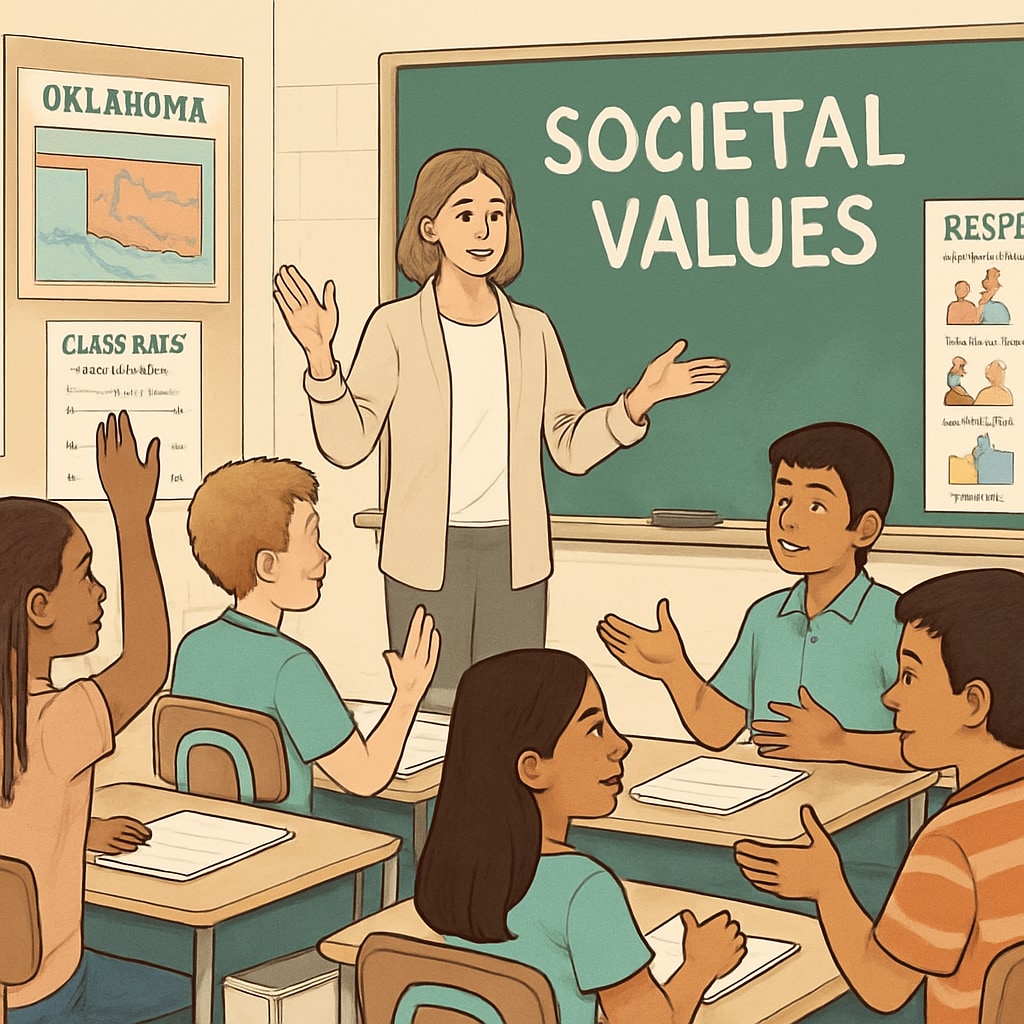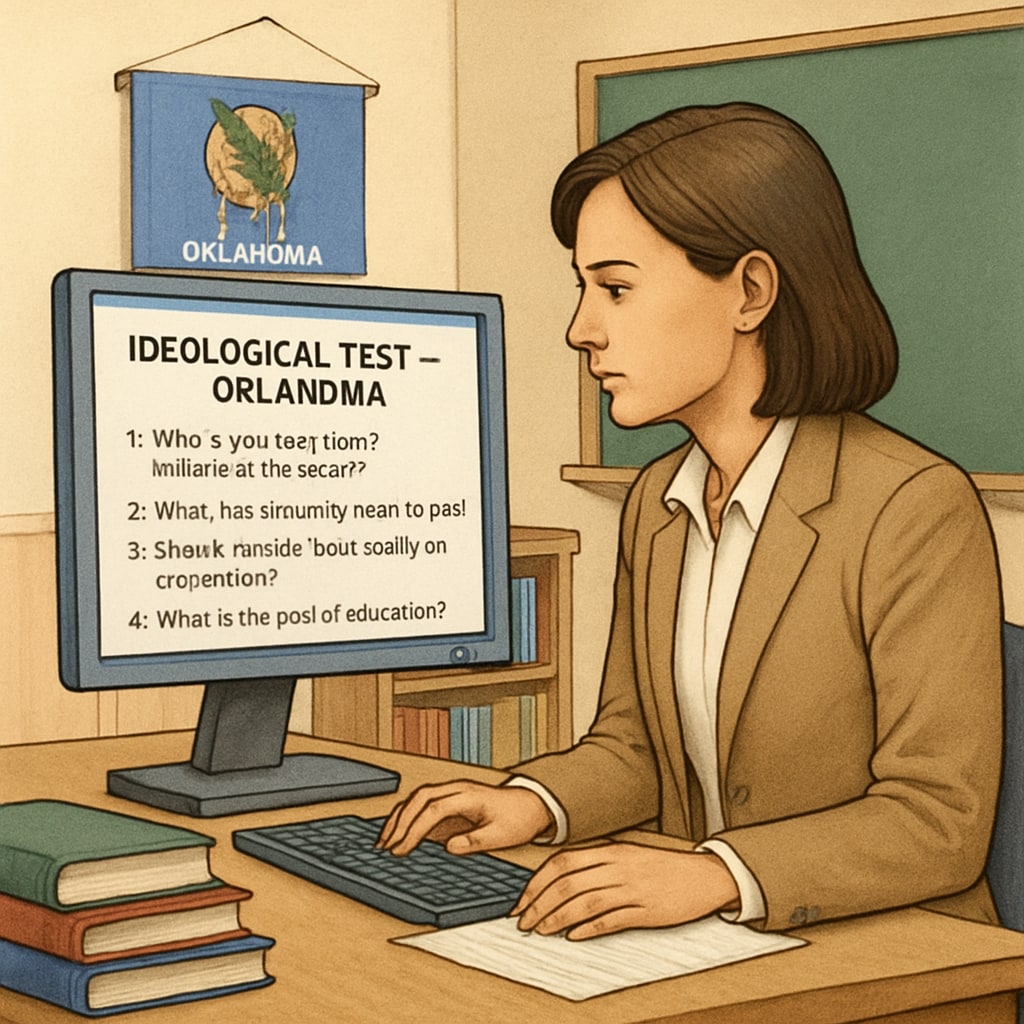In recent months, Oklahoma’s decision to introduce political inclination tests for out-of-state teacher applicants has created ripples across the education sector. This controversial policy, which seeks to assess potential teachers’ ideological alignment, raises critical concerns about education neutrality, political interference, and the broader implications for the teaching profession. As debates intensify, stakeholders are questioning whether such measures will safeguard education or further politicize it.
The Rise of Ideological Screening in Teacher Hiring
Oklahoma’s political inclination test is designed to evaluate whether applicants’ beliefs align with certain ideological frameworks deemed acceptable by the state. Advocates of the policy argue that it ensures teachers promote values consistent with local cultural and political norms. However, critics contend that this approach undermines the core principle of education neutrality, which emphasizes inclusivity and unbiased knowledge dissemination.
Such measures are not entirely new; ideological screening has historically surfaced in various forms, often during periods of heightened political tension. For example, during the Cold War, educators in the United States were scrutinized for suspected communist affiliations. Today, however, the focus appears to have shifted towards broader cultural and political ideologies, reflecting the increasingly polarized political landscape.

Potential Impacts on the Teaching Profession
Implementing political inclination tests could have far-reaching consequences for the teaching profession. First and foremost, it may deter qualified educators from applying, particularly those from states with differing cultural or political climates. As a result, Oklahoma could face challenges in addressing teacher shortages—a problem that already affects many states nationwide.
Additionally, the policy risks alienating teachers who prioritize fostering critical thinking and encouraging students to engage with diverse perspectives. Educators might feel pressured to conform to state-sanctioned ideologies, potentially stifling their ability to provide balanced and comprehensive instruction.
Furthermore, this approach could set a precedent for other states, leading to a fragmented education system where hiring practices are increasingly influenced by political agendas rather than merit or expertise. Such trends might erode public trust in the education sector, as schools become perceived as battlegrounds for ideological conflicts rather than spaces for unbiased learning.

Balancing Education Neutrality and Political Oversight
While the state’s intentions may stem from a desire to safeguard community values, the implementation of political inclination tests raises fundamental questions about the boundaries between education and politics. Should governments have the authority to regulate the ideological leanings of educators, or does such oversight risk compromising education’s role as an impartial platform for knowledge exchange?
To strike a balance, policymakers must consider alternatives that promote both community cohesion and educational integrity. For example, offering professional development programs focused on fostering cultural sensitivity and inclusivity could be a less intrusive method of aligning educators with local values. Additionally, creating transparent guidelines that emphasize teaching methodologies over personal beliefs might help mitigate concerns about political interference.
Ultimately, education should aim to equip students with the skills necessary to navigate a complex, diverse world. This goal requires educators who can present multiple perspectives and encourage critical thinking—qualities that may be jeopardized by policies prioritizing ideological conformity.
The Broader Implications for Society
Oklahoma’s policy highlights a broader societal challenge: the increasing politicization of institutions that traditionally operate independently of political agendas. As education becomes a focal point in ideological debates, there is a risk that schools may lose their ability to serve as neutral spaces for intellectual growth.
To address these concerns, stakeholders—including educators, policymakers, and community members—must engage in open dialogues about the role of politics in education. Such discussions should prioritize the long-term well-being of students, ensuring that they benefit from diverse perspectives and unbiased instruction.
In conclusion, while Oklahoma’s political inclination test for teacher applicants reflects evolving societal dynamics, it also underscores the need to preserve education’s neutrality. By fostering collaboration and transparency, states can develop policies that uphold community values without compromising the integrity of the teaching profession.
Readability guidance: Short paragraphs and lists summarize key points; passive voice and long sentences are minimized; transitions like “however,” “in addition,” and “as a result” connect ideas effectively. Balanced distribution of keywords ensures SEO optimization without overuse.


